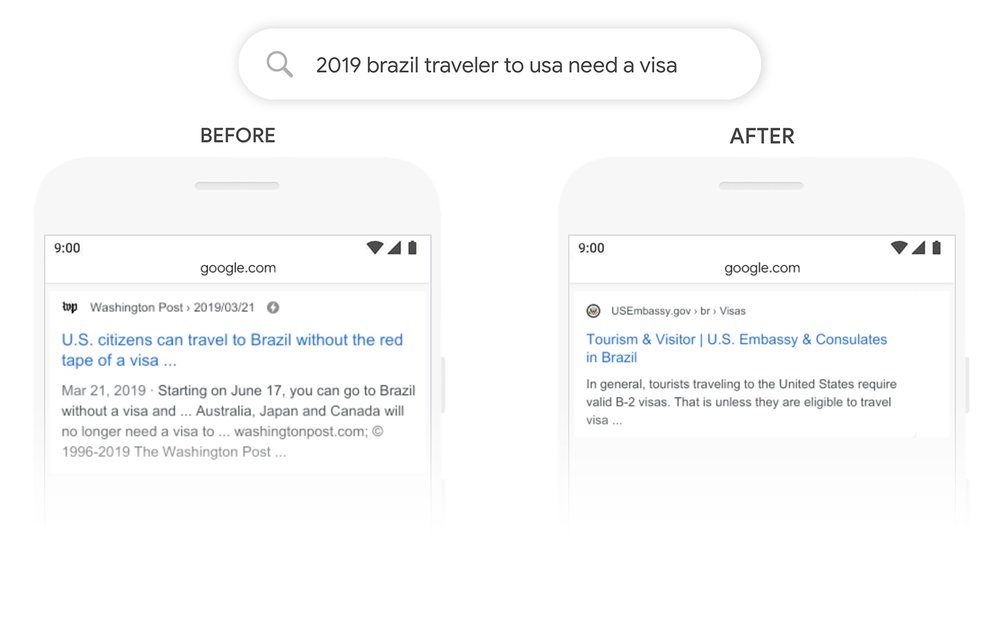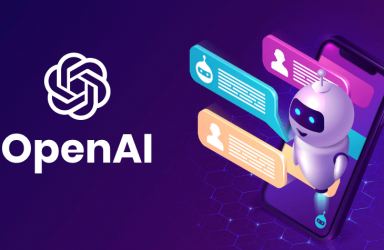Estimated Reading Time [est_time]
This short post looks at – what it is, why has it been released and what impact it may have.
There is always a sense of unease by the webmaster and marketing community whenever Google releases an update to its search engine. This release (BERT) has caused some excitement as its Google’s largest update for 5 years. But as the late great Douglas Adams said in his infamous book, The Hitchhiker’s Guide to the Galaxy, “Don’t Panic”.
On October 25, Pandu Nayak, a Google fellow and Vice President of Search, posted on the Google blog that the internet search giant was updating its algorithm.
Though Google continually updates its algorithm throughout the year, many thought the post was a general update that would be discussed on the forums and search communities around the world.
This update, however, was causing a minor tremor in the SEO community as those that study search query data and technical SEO could see that Google’s rollout was having a more profound effect.
In short, this was a Major Google Update.
Understanding intent in search queries
The blog post by Pandu, who was a Research Scientist at the NASA Ames Research Center and taught classes on Reasoning Methods in Artificial Intelligence at Stanford University; was outlining how Google was looking to better understand user search queries and that even though there are billions of searches conducted every day, a staggering 15% of those searches have never been seen before.
Enter BERT, or to give its proper technical name, Bidirectional Encoder Representations from Transformers is designed to process words in relation to all the other words in a sentence, rather than one-by-one in order.
This means that Google can consider the full context of words by looking at the terms that come before or after the query. This intelligent software update is also backed by changes to Google’s search hardware infrastructure.
As Pandu says on his blog, “Some of the models we can build with BERT are so complex that they push the limits of what we can do using traditional hardware, so for the first time we’re using the latest Cloud TPUs to serve search results and get you more relevant information quickly.”
The Cloud TPUs Google are using have broken AI training records and will be at the heart of the machine learning BERT rollout and allow for greater scale, and at a lower cost.
Content is King – don’t manipulate it
We have known for a while that a large ranking factor on Google Search is rich informative content. This has now been accentuated by the release of the BERT update.
BERT will merge featured snippets alongside its regular ranking to provide a richer context to its search results, especially longer search queries like the example below.
What is the market saying?
It is clear that that the SEO community is coming to terms with the new update. Initial feedback has been mixed.
Barry Schwartz (Rusty Brick) at SEO Roundtable said, “In short – Google updates like core updates and Panda, Penguins and the like, are specifically designed to improve search quality and go after methods that try to abuse search quality. Penguin went after link manipulation efforts, Panda went after content manipulation efforts and core updates look at quality issues overall.”
Danny Sullivan, Google’s public Search Liaison, said on Twitter, “There’s nothing to optimize for with BERT, nor anything for anyone to be rethinking. The fundamentals of us seeking to reward great content remain unchanged.”
What is clear, is that BERT is here, changes are happening and having an effect and it will all be for the greater good as Google search improves.








